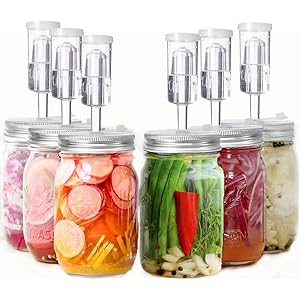Understanding Fermentation
Fermentation is a metabolic process that converts sugar to acids, gases, or alcohol using microorganisms such as bacteria, yeast, or fungi. This process occurs in anaerobic conditions, meaning it takes place without oxygen. The result of fermentation is not only the production of these byproducts but also the transformation of food, enhancing its flavor, texture, and nutritional profile. Different types of fermentation yield various results, making it a versatile technique in food production.
Types of Fermentation
There are several types of fermentation, each resulting in different products. Alcoholic fermentation, primarily carried out by yeast, converts sugars into ethanol and carbon dioxide. This process is essential in the production of alcoholic beverages like beer and wine. Lactic acid fermentation, on the other hand, is performed by lactic acid bacteria and results in the production of lactic acid, which is crucial in the making of yogurt, sauerkraut, and pickles. Each type of fermentation leads to distinct flavors and textures in the final product.
The Role of Microorganisms
Microorganisms play a pivotal role in fermentation. Yeasts, such as Saccharomyces cerevisiae, are responsible for alcoholic fermentation, while various strains of bacteria, including Lactobacillus, are key players in lactic acid fermentation. These microorganisms not only facilitate the conversion of sugars but also contribute to the development of complex flavors and aromas in fermented foods. The health and activity of these microorganisms are critical to achieving the desired results of fermentation.
Health Benefits of Fermented Foods
The result of fermentation extends beyond flavor enhancement; it also offers numerous health benefits. Fermented foods are rich in probiotics, which are beneficial bacteria that promote gut health. These probiotics can improve digestion, boost the immune system, and even enhance mental health. Additionally, fermentation can increase the bioavailability of nutrients, making it easier for the body to absorb vitamins and minerals present in the food.
Fermentation in Food Preservation
One of the significant results of fermentation is its role in food preservation. The production of acids and alcohol during fermentation creates an environment that inhibits the growth of spoilage-causing microorganisms. This natural preservation method has been used for centuries to extend the shelf life of various foods, allowing them to be stored for longer periods without refrigeration. Examples include pickles, kimchi, and fermented meats.
Get more content like this!
Sign up to receive updates and new terms first hand.
Flavor Development Through Fermentation
Fermentation is renowned for its ability to develop unique and complex flavors in food. The metabolic activities of microorganisms produce a variety of compounds, including esters, phenols, and organic acids, which contribute to the overall taste profile. For instance, the sourness of yogurt and the tanginess of sourdough bread are direct results of the fermentation process. This flavor development is highly valued in culinary practices worldwide.
Fermentation and Culinary Applications
In culinary applications, fermentation is utilized to create a wide array of products. From bread and cheese to kombucha and miso, the results of fermentation are evident in many traditional and modern dishes. Chefs and home cooks alike embrace fermentation as a technique to enhance flavors, improve textures, and introduce new elements to their cooking. The versatility of fermentation makes it an essential skill in the culinary arts.
Environmental Impact of Fermentation
The fermentation process can also have a positive environmental impact. By utilizing local ingredients and traditional methods, fermentation can reduce food waste and promote sustainable practices. Additionally, the production of fermented foods often requires fewer resources compared to industrial food processing, making it a more eco-friendly option. This aspect of fermentation aligns with the growing trend towards sustainable and responsible food production.
Future of Fermentation
As interest in fermentation continues to grow, researchers and food innovators are exploring new applications and techniques. The result of fermentation is being harnessed not only in food production but also in the development of alternative proteins and sustainable food sources. With advancements in biotechnology, the potential for fermentation to address global food challenges is becoming increasingly recognized, paving the way for a future where fermentation plays a crucial role in food security.




